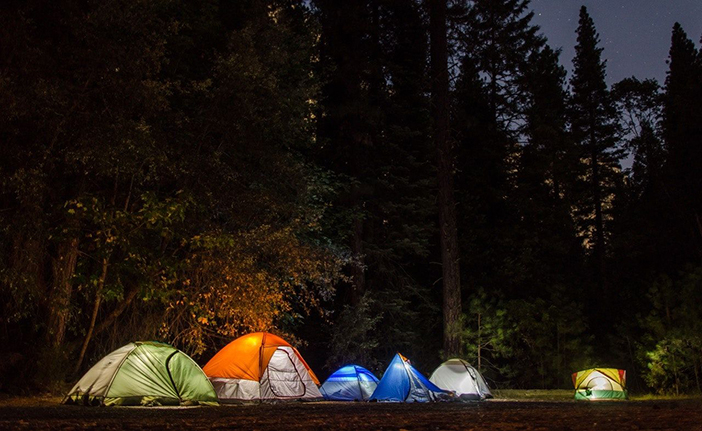For many families, camp is a rite of passage. Some go to the same overnight camp generation after generation while others enjoy sampling different options. And some simply avoid camps altogether. They might prefer to spend the summers traveling or think summer school is a better use of their child’s time and the family’s resources.
Either way, many families want their child to have a camp experience but wonder if it is really worth the cost. When asked my opinion by anxious parents I usually respond with, “Well that depends, what do you as a family want to get out of camp?” Below are my suggestions depending on the answers.
 “We want them to have a good time… just not in our house:” Hey! No judgment here! School is out, mom and dad need to work, and a full-time ayi isn’t in the cards. A good general day camp with lots of activity options is a great choice. Just make sure you do your due diligence. Many camps will hire teenagers to lead classes or worse, hire them as unpaid interns and put them in charge of a group of kids. Even the most responsible 16-year-old is still only 16! So, ensure that there is a qualified adult (or preferably adults) in charge of each group and that you are comfortable with the ratios.
“We want them to have a good time… just not in our house:” Hey! No judgment here! School is out, mom and dad need to work, and a full-time ayi isn’t in the cards. A good general day camp with lots of activity options is a great choice. Just make sure you do your due diligence. Many camps will hire teenagers to lead classes or worse, hire them as unpaid interns and put them in charge of a group of kids. Even the most responsible 16-year-old is still only 16! So, ensure that there is a qualified adult (or preferably adults) in charge of each group and that you are comfortable with the ratios.
“We want them to avoid the summer slide:” For those who aren’t familiar with the term, “summer slide” is a well-documented phenomenon by which kids spend all summer playing and return to school in September having forgotten most of what they learned the previous year. A good STEAM camp can be a fun answer to this problem. A camp like this should be run by educators who know how to use the arts to make science and math approachable and fun. In educational circles, these are often referred to as arts integration specialists. The fun factor is really important on this one. Make sure your kids won’t be sitting in lectures all day, that’s just summer school by another name and most kids will hate it. Instead, look for project-based learning lead by competent teachers.
“They want to learn X:” If your child has a specific interest – theatre or space travel, for example – zero in on a specialty program. Look for a camp that is as hands-on as possible and run by people who are experts in their field. For instance, a good theatre camp will have people who were or are working actors, directors, and playwrights but are also educators. The best option will have the children actively creating a play from start to finish (although it may or may not culminate in a performance). Your student should have a hand in every step of the process, from writing and costumes to acting and directing. Be warned though, these will be the costliest if they are any good. Experts and specialized products like lights and stage make-up are heavy budget line items that the camp needs to pass on to stay in business.
“We want them to gain some independence:” For the right child, overnight or stay away camps are great. I particularly think these are worth the cost when combined with a specialty program from above. An emotionally prepared child will do really well in an immersive environment where they are distracted from the normal nerves of being away from home by learning about something they love. However, for a child who is not ready, overnight camps can be awful. If your child is not ready to be away from you long-term in a strange place, don’t push them. College will come soon enough. If that’s the case, start with a day camp and arrange a sleep-over or two this summer.
A note on cost: You get what you pay for. Camps are expensive because the underlying costs of operating one are expensive, and the camp only has so much time to recoup the investment. Renting a safe space in a convenient location for a short-term day camp isn’t cheap. Good, knowledgeable staff don’t work for free, and even basic supplies like playdough and construction paper cost money. If your child is fed lunch or snacks the camp probably had to contract with a caterer, not to mention needing a license, insurance, and support staff to run the desk, answer phones, and do the massive amount of paperwork required to keep your child safe and the camp following government safety protocols.
It compounds with sleepaway camps. They pay rent and maintenance on the property and facilities, plus salary for a skeleton staff all year but can only charge for three or four months’ worth of services each season.
So, if a camp’s per week price is drastically lower than its competitors, ask yourself where they are cutting corners. When was the last time the pool or the zip line were properly inspected and cleaned? How well is the staff trained? Is the food safe and nutritious?
I know family budgets are tight, but your child’s safety is not the place to skimp. Don’t pay more than is necessary, but I strongly advise against bargain-basement deals as well.
KEEP READING: Camp Separation Anxiety: School Drop Off Was Fine, So Why the Sudden Clinging?
Images: Pexels
 This article appeared in the jingkids 2021 May issue
This article appeared in the jingkids 2021 May issue




